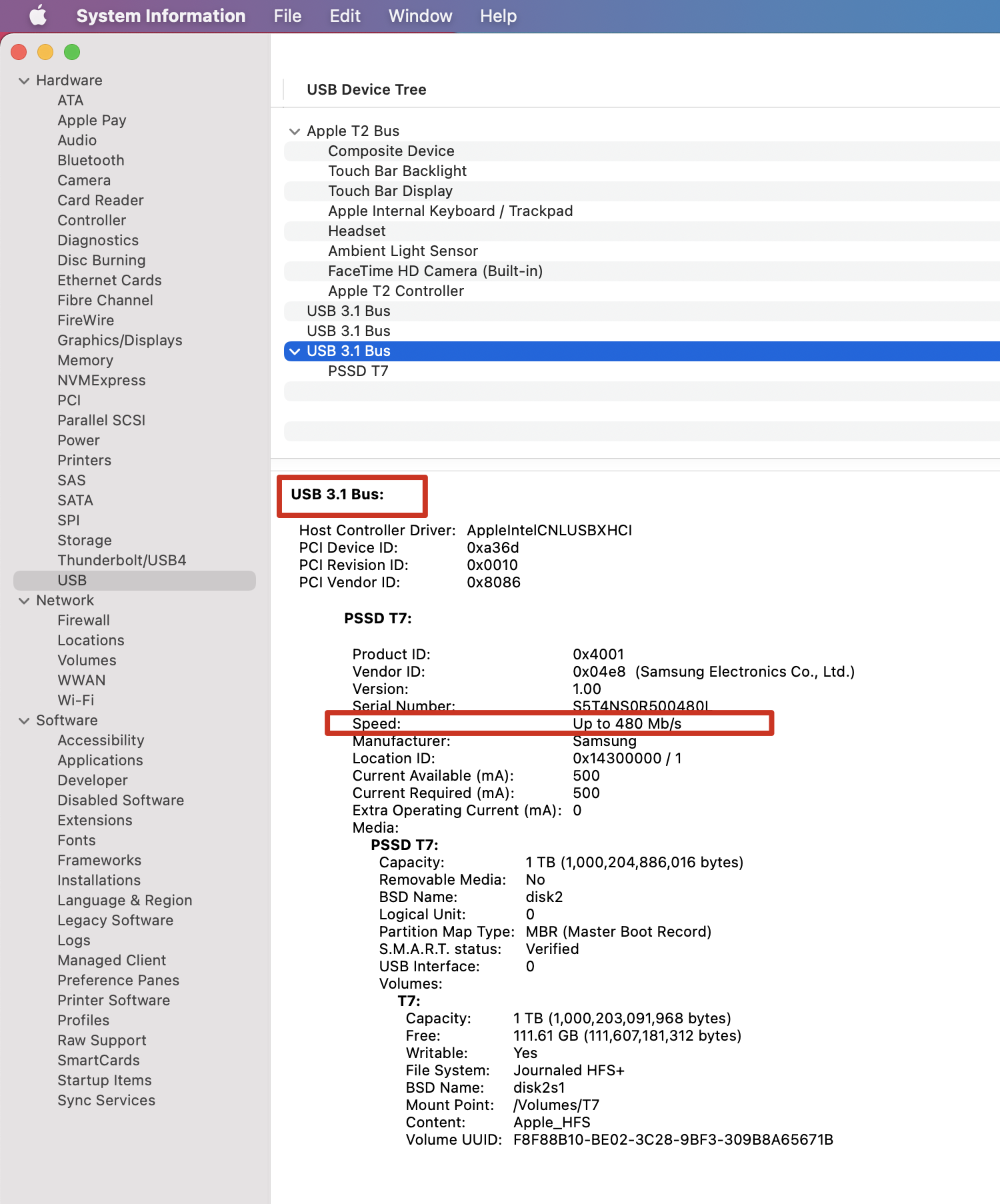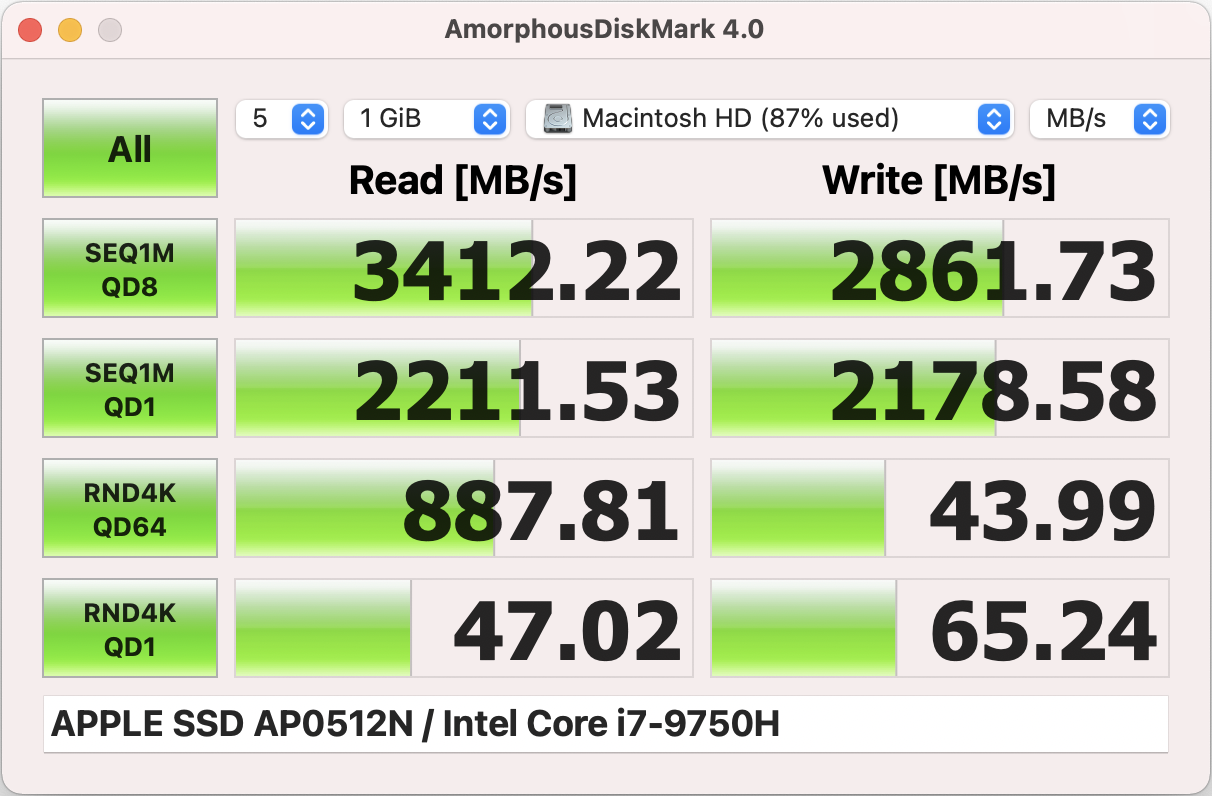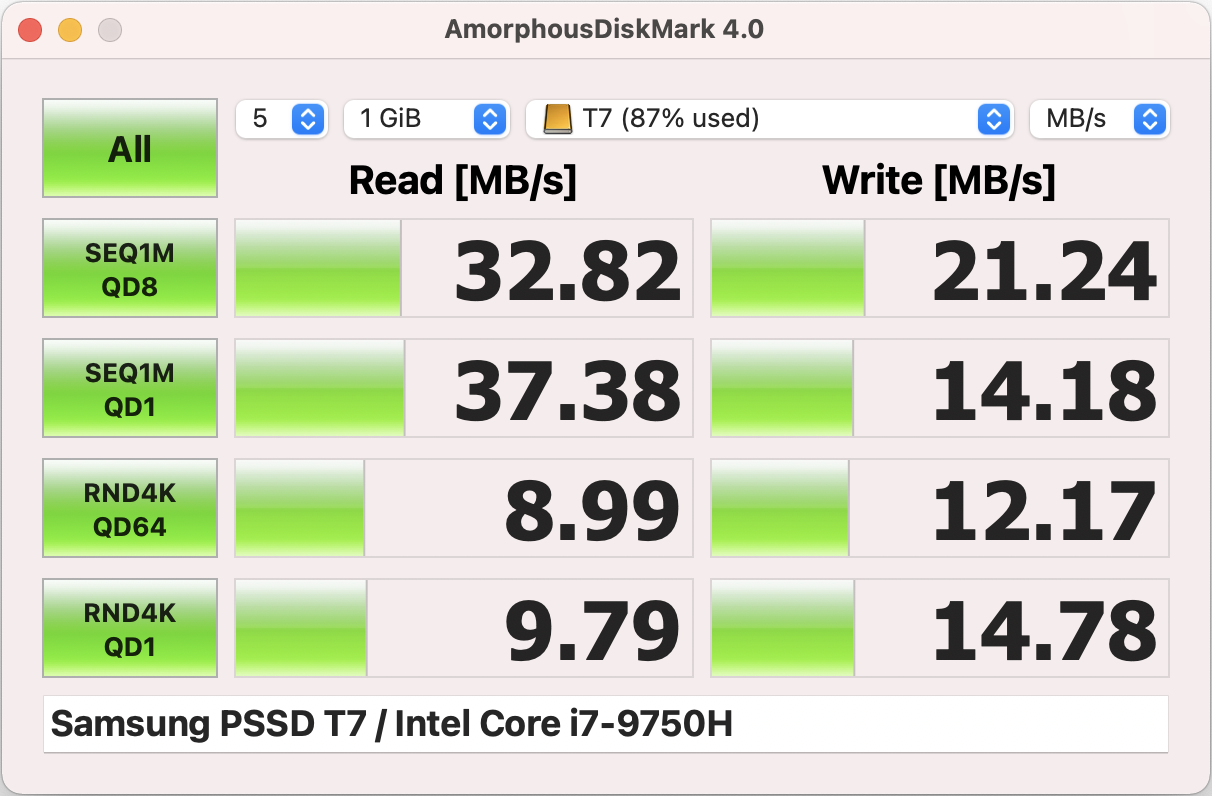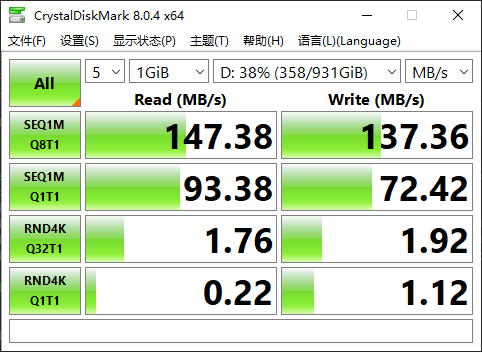coding best practice
check usb type 2/3
Open the mac system information via click Apple icon while holding option key, and check the usb column info:

ref:
test read/write (IO) speed of hard drivers
for windows:
for mac:
test mac of inner:

test mac of usb driver:

test windows of lixiang:

ref:
the cost to compat Chinese
The definition before:
export const COL_ID = 'id';
export type COL_ID = typeof COL_ID;
export const COL_AREA = 'area';
export type COL_AREA = typeof COL_AREA;
export const COL_WEIGHT = 'weight';
export type COL_WEIGHT = typeof COL_WEIGHT;
export const COL_DATE = 'date';
export type COL_DATE = typeof COL_DATE;
export const COL_CP_NAME = 'cp';
export type COL_CP_NAME = typeof COL_CP_NAME;
export const erpCols = [
COL_ID,
COL_DATE,
COL_WEIGHT,
COL_AREA,
COL_CP_NAME,
] as const;
export type ErpCols = typeof erpCols[number];
The definition after:
export const COL_ID = '单号';
export type COL_ID = typeof COL_ID;
export const COL_AREA = '地区';
export type COL_AREA = typeof COL_AREA;
export const COL_WEIGHT = '重量';
export type COL_WEIGHT = typeof COL_WEIGHT;
export const COL_DATE = '日期';
export type COL_DATE = typeof COL_DATE;
export const COL_CP_NAME = '公司';
export type COL_CP_NAME = typeof COL_CP_NAME;
export const erpCols = [
COL_ID,
COL_DATE,
COL_WEIGHT,
COL_AREA,
COL_CP_NAME,
] as const;
export type ErpCols = typeof erpCols[number];
The usage before:
export const validateErpItem = (data: IErpItem): IErpItem => {
return {
id: validateId(data.id),
weight: validatePositive(data.weight as unknown as string),
date: validateDate(data.date),
area: validateArea(data.area),
cp: validateCpName(data.cp),
};
};
The usage after:
// src/main/modules/parseFile/handler/validators/index.ts:13
export const validateErpItem = (data: IErpItem): IErpItem => {
return {
[COL_ID]: validateId(data[COL_ID]),
[COL_WEIGHT]: validatePositive(data[COL_WEIGHT] as unknown as string),
[COL_DATE]: validateDate(data[COL_DATE]),
[COL_AREA]: validateArea(data[COL_AREA]),
[COL_CP_NAME]: validateCpName(data[COL_CP_NAME]),
};
};
API design
In this following api, there is error | content | level, and at the same time, the error and content are both omittable, which seems a well-thoughtful design.
// src/main/base/response.ts:28
export interface IResBase {
error?: {
type: ErrorType;
msg?: string;
};
content?: any;
level: LogLevel;
sendTime: Date;
}
However, when put into practice and communicating between back and frond, we found it hard to manage, since too arbitrary.
Look again this design, we can know the information of LogLevel has something to do with error, and since the level is required, then no need to put the error as a super level field.
After my attempt, maybe a more suitable design is to put error into content when its' an error api.
export interface IResBase {
content?: any;
level: LogLevel;
sendTime: Date;
}
export interface IResError {
level: LogLevel.Warning | LogLevel.Error;
content: {
errorType: ErrorType;
errorMsg: string;
};
}
And then the sate becomes easier to differentiate and manage.